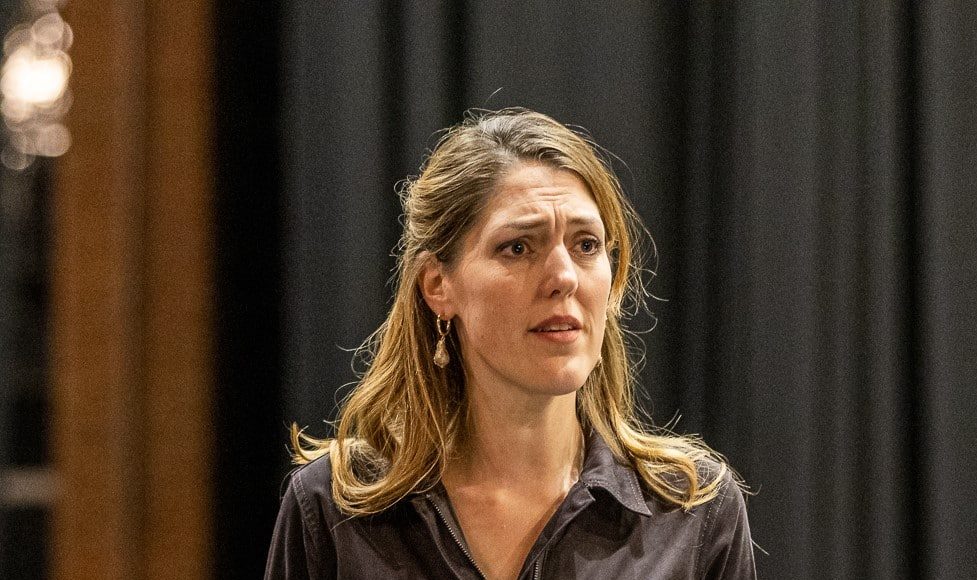Interview Maartje Rammeloo
A modern and powerful woman
Maartje Rammeloo performs the role of Liza Elliott in this Broadway opera. She talks candidly about preparing for this wonderful role and her personal experiences with performance pressure and stress. ‘We are all always “on”.’
There are few operas in which a woman plays such a prominent role. Everything revolves around Liza. Even when you are not on stage for a moment, the others talk about her. How did you prepare for this big role?
‘To play Liza, I really immersed myself in her time. I watched films and read books because I wanted to know what it was like to live in New York in the 1940s. What did people look like, how did they behave? I also find the social and political developments interesting. There are many references in the text to people and incidents in the 1940s. If you delve into these, you understand the underlying relationships and also Liza’s behaviour better. As a result, I can empathise with her better. I even took dance lessons to be able to dance like Liza and started juggling at home. With all these experiences, I practised the text, first “dry” and then with emotion. Quite a job because it is indeed a big role.’
The play was written in the middle of the last century. As a modern woman, do you still recognise yourself in Liza?
‘I recognise her fears and emotions and sometimes her feelings are even very close to my own. While rehearsing at home, I often cried. In our society, and certainly in our profession, we ask a lot of ourselves and that can be stressful. My work is a big part of my identity, but I am also a mother. That sometimes creates tension. When you think about how much faster and more demanding our society is these days, you realise that you don’t even have to be a workaholic like Liza to get burnout. We are all always “on”. This will also be very recognisable to the audience.’
In her sleep, Liza is able to escape this constant pressure. And then come the dreams. What is it like to sing them?
‘Director Anna Pool challenges us to sing and play these dreams grandly and imaginatively, like in old Hollywood films. Being allowed to express yourself so dramatically is really fantastic. The fascinating thing about these dreams is that we see not only the Liza going through a difficult period in her life, but also her hidden side; her dreams and fantasies. Discovering Liza in all her facets is a huge challenge, but therefore also an emotional rollercoaster.’
Liza visits a psychologist, which was quite exceptional at the time. How do you view this?
‘Although today it is much more normal to see a psychologist, people are still not very open about issues like work pressure and stress. I do talk to others about my mental health, including on social media, and I get positive reactions to it. People recognise themselves in my experiences, even if they don’t let themselves talk about it so easily. People still often see it as a sign of weakness. In that respect, we haven’t made much progress yet. I find Liza’s development through psychoanalysis hopeful. She looks her problems straight in the eye and finally feels liberated. She makes a choice and doesn’t leave it to the men. I find that powerful and also very modern. Especially for a story set in 1941, but just as well before 2022.’
Interview: Manon Berns
